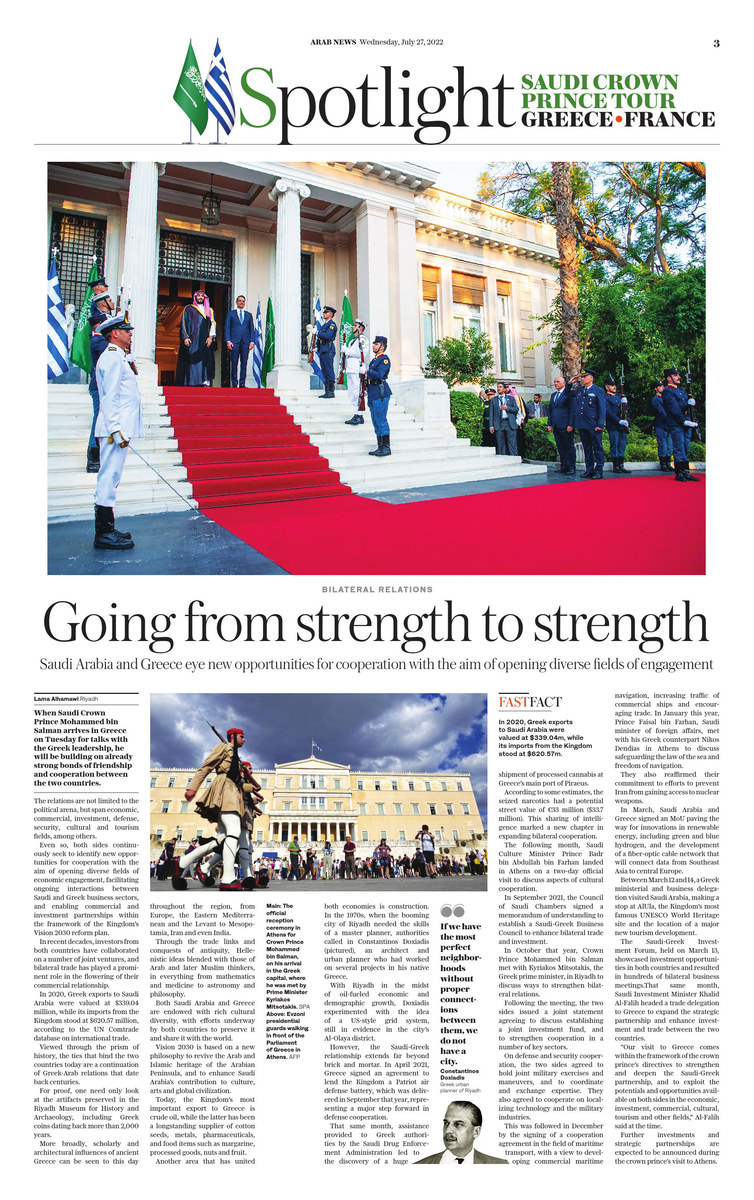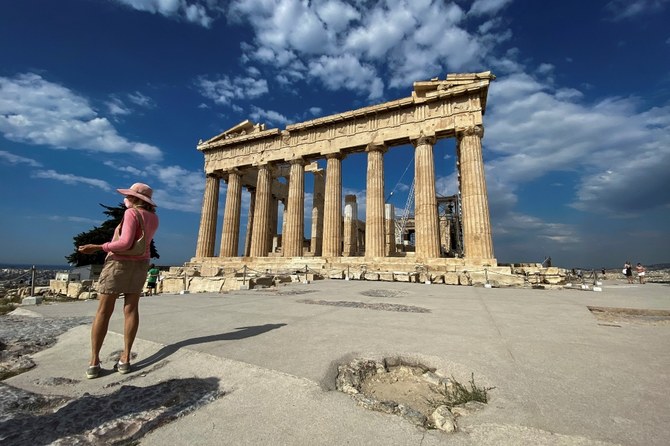RIYADH: When Saudi Crown Prince Mohammed bin Salman arrives in Greece on Tuesday for talks with the Greek leadership, he will be building on already strong bonds of friendship and cooperation between the two countries.
The relationship is not limited to the political arena, but spans economic, commercial, investment, defense, security, cultural and tourism fields among others.
Even so, both sides continuously seek to identify new opportunities for cooperation with the aim of opening diverse fields of economic engagement, facilitating ongoing interactions between Saudi and Greek business sectors, and enabling commercial and investment partnerships within the framework of the Kingdom’s Vision 2030 reform plan.
In recent decades, investors from both countries have collaborated on a number of joint ventures, and bilateral trade has played a prominent role in the flowering of their commercial relationship.
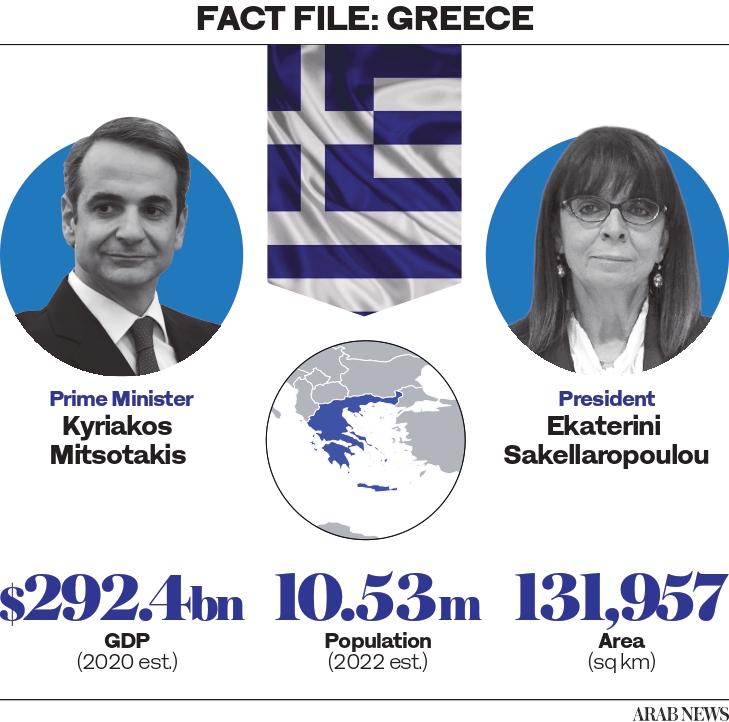
In 2020, Greek exports to Saudi Arabia were valued at $339.04 million, while its imports from the Kingdom stood at $620.57 million, according to the UN Comtrade database on international trade.
Viewed through the prism of history, the ties that bind the two countries today are a continuation of Greek-Arab relations that date back centuries.
For proof, one need only look at the artifacts preserved in the Riyadh Museum for History and Archaeology, including Greek coins dating back more than 2,000 years.
More broadly, scholarly and architectural influences of ancient Greece can be seen to this day throughout the region, from Europe, the eastern Mediterranean and the Levant to Mesopotamia, Iran and even India.
Through the trade links and conquests of antiquity, Hellenistic ideas blended with those of Arab and later Muslim thinkers, in everything from mathematics and medicine to astronomy and philosophy.
Both Saudi Arabia and Greece are endowed with rich cultural diversity, with efforts underway by both countries to preserve it and share it with the world.
Vision 2030 is based on a new philosophy to revive the Arab and Islamic heritage of the Arabian Peninsula, and to enhance Saudi Arabia’s contribution to culture, arts and global civilization.
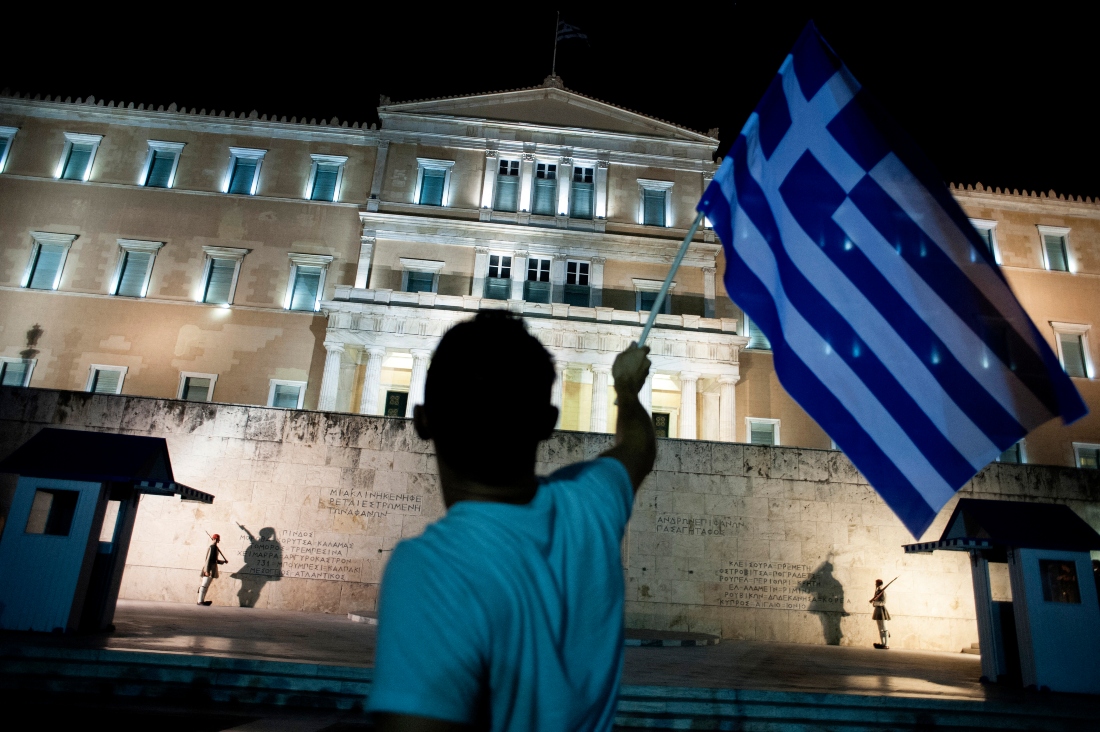
The crippling debt crisis of 2009 onward brought Greece to the very brink of crashing out of the eurozone. (AFP)
Today, the Kingdom’s most important export to Greece is crude oil, while the latter has been a longstanding supplier of cotton seeds, metals, pharmaceuticals, and food items such as margarine, processed goods, nuts and fruit.
Another area that has united both economies is construction. In the 1970s, when the booming city of Riyadh needed the skills of a master planner, authorities called in Constantinos Doxiadis, an architect and urban planner who had worked on several projects in his native Greece.
With Riyadh in the midst of oil-fueled economic and demographic growth, Doxiadis experimented with the idea of a US-style grid system, still in evidence in the city’s Al-Olaya district.
However, the Saudi-Greek relationship extends far beyond brick and mortar. In April 2021, Greece signed an agreement to lend the Kingdom a Patriot air defense battery, which was delivered in September that year, representing a major step forward in defense cooperation.
That same month, assistance provided to Greek authorities by the Saudi drug-enforcement agency led to the discovery of a huge shipment of processed cannabis at Greece’s main port of Piraeus.
According to some estimates, the seized narcotics had a potential street value of €33 million ($33.7 million). This sharing of intelligence marked a new chapter in expanding bilateral cooperation.
The following month, Saudi Culture Minister Prince Badr bin Abdullah bin Farhan landed in Athens on a two-day official visit to discuss aspects of cultural cooperation.
In September 2021, the Council of Saudi Chambers signed a memorandum of understanding to establish a Saudi-Greek Business Council to enhance bilateral trade and investment.
In October that year, Crown Prince Mohammed bin Salman met with Kyriakos Mitsotakis, the Greek prime minister, in Riyadh to discuss ways to strengthen bilateral relations.
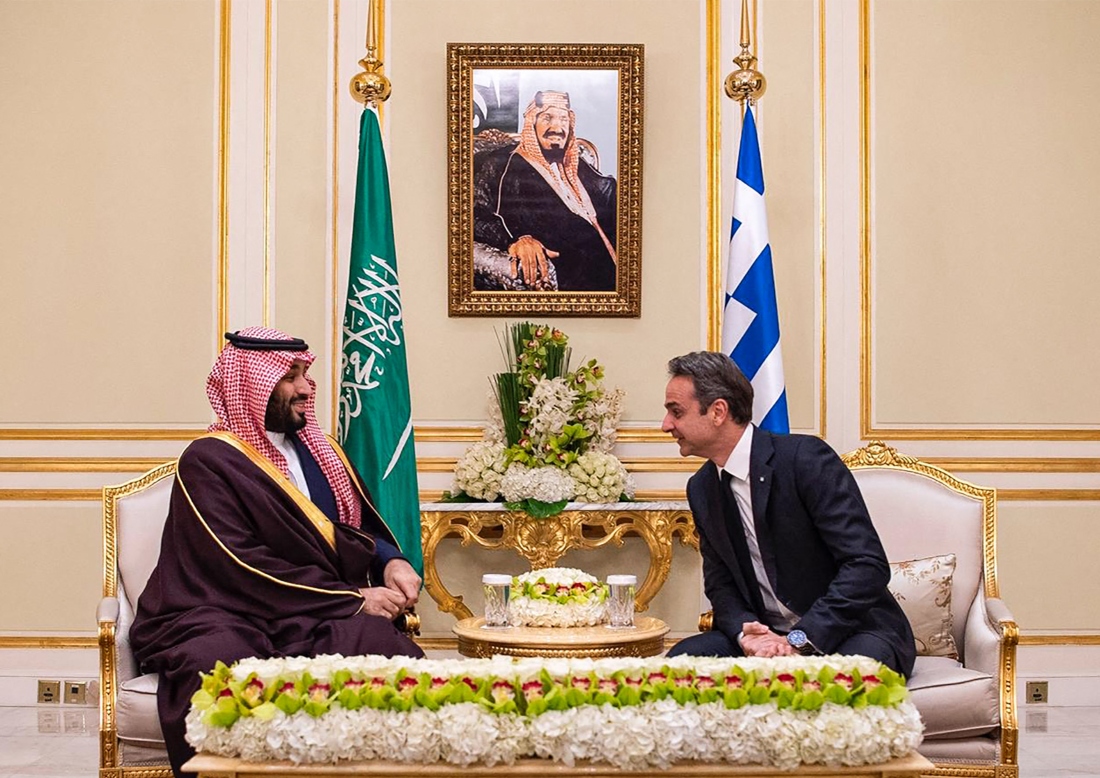
Saudi Crown Prince Mohammed bin Salman met with Greek Prime Minister Kyriakos Mitsotakis (R) in the capital Riyadh in February 2020. (Bandar Al-Jaloud/Saudi Royal Palace/AFP)
Following the meeting, the two sides issued a joint statement agreeing to discuss establishing a joint investment fund, and to strengthen cooperation in a number of key sectors.
On defense and security cooperation, the two sides agreed to hold joint military exercises and maneuvers, and to coordinate and exchange expertise. They also agreed to cooperate on localizing technology and the military industries.
This was followed in December by the signing of a cooperation agreement in the field of maritime transport, with a view to developing commercial maritime navigation, increasing traffic of commercial ships and encouraging trade.
In January this year, Prince Faisal bin Farhan, Saudi minister of foreign affairs, met with his Greek counterpart Nikos Dendias in Athens to discuss safeguarding the law of the sea and freedom of navigation.
They also reaffirmed their commitment to efforts to prevent Iran from gaining access to nuclear weapons.
In March, Saudi Arabia and Greece signed an MoU paving the way for innovations in renewable energy, including green and blue hydrogen, and the development of a fiber-optic cable network that will connect data from Southeast Asia to central Europe.
Between March 12 and 14, a Greek ministerial and business delegation visited Saudi Arabia, making a stop at AlUla, the Kingdom’s most famous UNESCO World Heritage site and the location of a major new tourism development.
The Saudi-Greek Investment Forum, held on March 13, showcased investment opportunities in both countries and resulted in hundreds of bilateral business meetings.
That same month, Saudi Investment Minister Khalid Al-Falih headed a trade delegation to Greece to expand the strategic partnership and enhance investment and trade between the two countries.
“Our visit to Greece comes within the framework of the crown prince’s directives to strengthen and deepen the Saudi-Greek partnership, and to exploit the potentials and opportunities available on both sides in the economic, investment, commercial, cultural, tourism and other fields,” Al-Falih said at the time.
Further investments and strategic partnerships are expected to be announced during the crown prince’s visit to Athens.
FASTFACT
A brief history of modern Greece
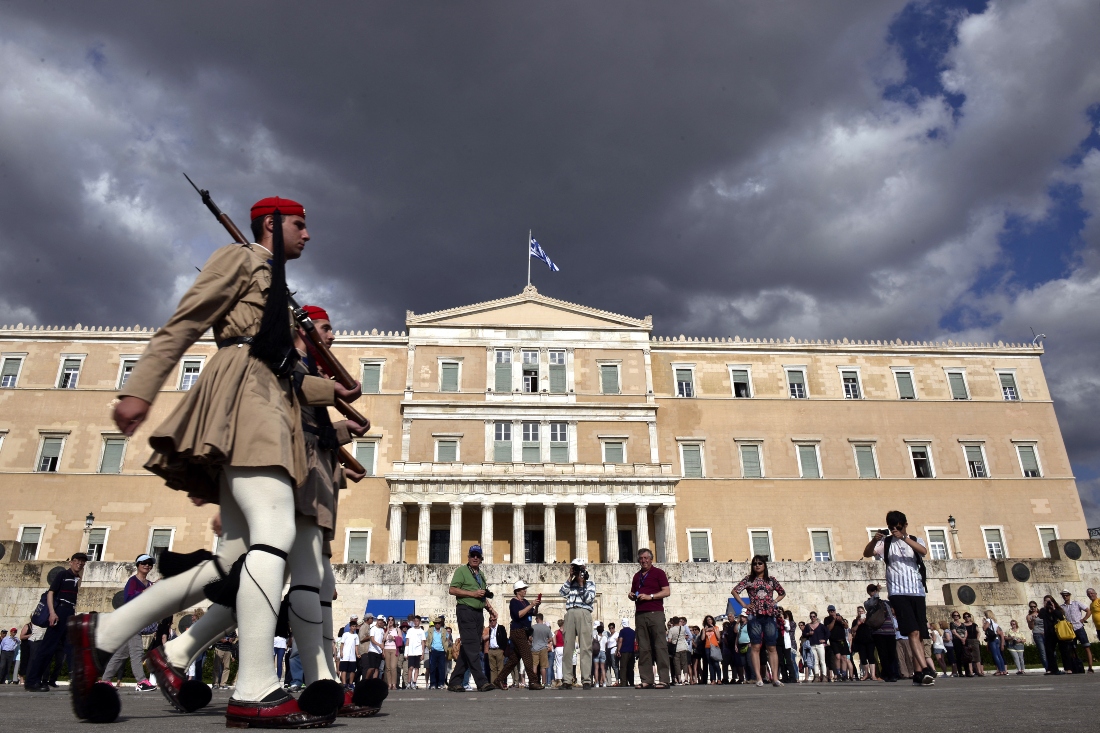
Evzoni presidential guards walking in front of the parliament of Greece in Athens. (AFP)
The Greek War of Independence, which began in 1821, led to the creation of the modern Greek state, which was recognized by the Ottomans in 1829 and by the international community in 1830.
Greece’s territory grew between 1864 and 1947, and in 1981 it became a full member of the European Community, enhancing the stability of the country’s democracy and establishing it as a critical state in the Balkans and eastern Mediterranean.
Barely two centuries after the war of independence, Greece is viewed as a pillar of stability and prosperity for the wider region of southern Europe and the eastern Mediterranean, and an EU member state. In recent years, Greece has instituted key infrastructural upgrades, including the digital state and new labor framework, transforming itself into a very competitive investment destination. Nonetheless, Greece has faced its share of internal and external crises.
For most of its modern history it has been deeply polarized, financially dependent and indebted to foreign creditors, and facing external threats. The debt crisis of 2009 onward brought the nation to the very brink of crashing out of the eurozone.
Greece was in the process of a slow return to growth after years of austerity when the COVID-19 pandemic hit in early 2020. This coincided with another turbulent period in Greek-Turkish relations.
The two states have a long and troubled history. Indeed, modern Turkey was established on the back of a victory against Greek forces in the aftermath of the First World War. The participation of both states in NATO since 1952 has not eased relations since they each have outstanding issues concerning the Aegean Sea and Cyprus. The two disagree on the boundaries of their territorial waters and, in turn, disagree on the extent of their exclusive economic zones.
